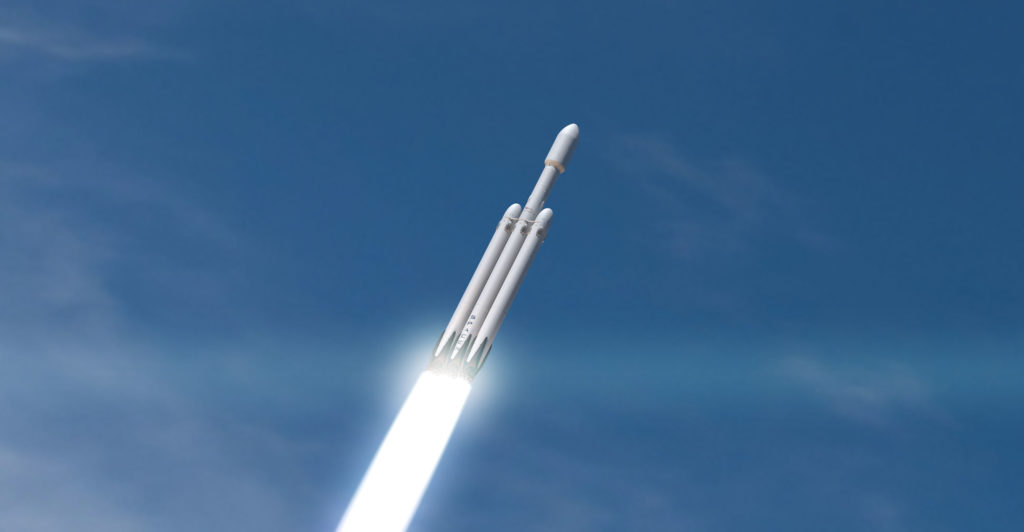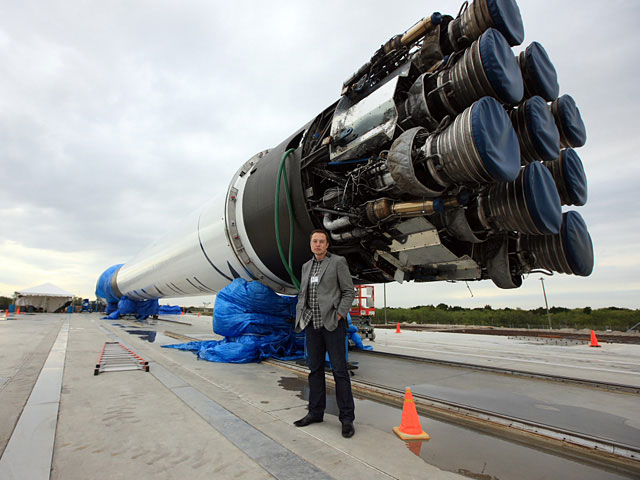
As has become customary at this time of the year, TechCentral is pleased to present its lists of who it considers the biggest technology newsmakers over the past 12 months, both internationally and in South Africa.
We kick it off, as always, with the five people the publication’s editors believe were the biggest newsmakers in the technology space in 2012 worldwide. Later this week, we’ll publish our South African technology newsmakers of the year.
Lists like this are, of course, subjective, but they’re our attempt to highlight the people we believe deserve the title of “newsmaker of the year”.

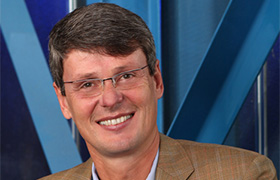 Thorsten Heins
Thorsten Heins
The Research in Motion (RIM) CEO has one of the toughest jobs in mobile. It’s up to Heins, a German national who joined RIM in 2007, to save the BlackBerry brand.
Heins, who took the reins from co-founders Jim Balsillie and Mike Lazarides at the beginning of the year, is leading the RIM troops in the development of the make-or-break BlackBerry 10 operating system.
Investors appear bullish. The Canadian company’s share price on the Nasdaq has climbed by more than two-thirds in the past three months. However, it’s still trading down by more than 90% since it peaked in 2008.
Early previews of BlackBerry 10 are impressive, but will consumers warm to it? Next year will be decisive for RIM and its leader. — DM

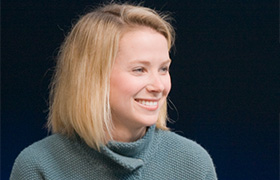 Marissa Mayer
Marissa Mayer
In July, this 37-year-old former Google vice-president became the president and CEO of floundering competitor Yahoo. In the process, Marissa Mayer became the youngest CEO of a Fortune 500 company.
Since taking the reins, Mayer has steered Yahoo’s share price to the best levels since late 2008. The share has climbed by more than 20% in the six months since Mayer took charge.
Mayer has spoken repeatedly about the need to Yahoo to reinvent itself for mobile and encouraged all staff, from programmers to sales staff, to get to grips with the three major mobile operating systems — Google’s Android, Apple’s iOS and Microsoft Windows Phone.
She recruited some of her former Google colleagues, including Henrique de Castro, who is now Yahoo’s chief operating officer. This has resulted in investors regaining confidence in a company many had written off, despite the fact that its various portals still attract 700m monthly visitors.
The same day Mayer’s appointment was made public by Yahoo, she announced she was pregnant. She had a baby boy at the end of September and returned to work just two weeks later. — CW

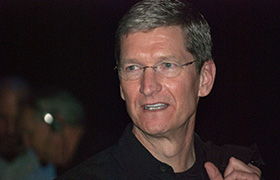 Tim Cook
Tim Cook
Taking the reins from the most celebrated CEO in a generation was never going to be easy. Yet, on Tim Cook’s watch, Apple share price has continued its upward march. Despite a sharp pullback in the past three months, the stock is still up by 40% since he took over from his friend and confidante Steve Jobs in August 2011.
Apple continues to churn out the hits: the new iPhone 5 is gorgeous and is selling like hotcakes, and the company continues to do well with both the iPad and its range of Macs.
However, questions are starting to emerge about whether Cook’s Apple can keep up the blistering pace of innovation that was the hallmark of the Jobs era. The company hasn’t introduced a major new product line since Jobs’s passing, focusing rather on incremental improvements to its small but highly successful line of consumer products.
Cook has done well to take the baton from Jobs and run with it. But his real test will come when he has to debut a new product line. Could we see the long-rumoured Apple television in 2013? Whatever that new product happens to be, it will be only then that Cook will really begin to define his legacy. — DM

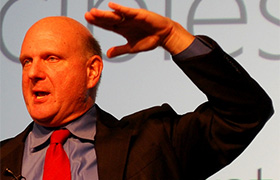 Steve Ballmer
Steve Ballmer
YouTube sensation Steve Ballmer, who also happens to run the world’s biggest software company, has had one hell of a year and narrowly missed making the number-one slot in this list.
The Microsoft CEO has overseen the biggest release schedule of new products in decades as the company fights to translate its dominance in PC computing into the mobile paradigm. A new version of Windows, with a touch-driven interface, has been pivotal to the company’s efforts to reinvent itself for the mobile future. It’s still too early to know if it’ll be successful, but Windows 8 is a good start.
The new Windows Phone platform for smartphones was also released, to generally positive reviews, and, thanks to high-quality handsets from Nokia and HTC, user interest in the Microsoft smartphone proposition continued to grow in 2012.
There were also new versions of Windows Server, SQL Server, Visual Studio and Microsoft’s cloud computing platform, Windows Azure, meant to tackle rivals like Amazon.com head on. And let’s not forget Office 2013, which will be available early in 2013.
More than all this new software, Microsoft is also starting to play more aggressively in the hardware game, launching its own range of tablets called Surface to take on the iPad. The move elicited strong criticism from some of the company’s partners, most notably Acer, but may be a smart move to create a reference design, like Google has done with its Nexus products, for its traditional PC partners to live up to. Could a Microsoft-branded smartphone be next?
There’s no doubt that Microsoft has a lot of work to do if it is to remain at the forefront of the technology industry, particularly as the twin forces of consumerisation of IT in the workplace and cloud computing continue to change the dynamics of the sector. But Ballmer and his team made excellent progress on all fronts in 2012. — DM

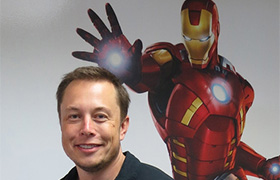 Elon Musk
Elon Musk
TechCentral’s International Newsmaker for 2012 is a South African. And he’s our top newsmaker in spite of and not because of that fact. Pretoria-born Elon Musk, who went to school in the South African capital city, has been in the headlines for all the right reasons in the past 12 months.
The 41-year-old’s company, SpaceX, docked Dragon, an orbiter Musk designed, with the International Space Station, landing a contract from Nasa for a dozen further supply missions in the process. And he finally took his electric car company Tesla — once on the brink of bankruptcy — into the black. Tesla’s Model S won the car of the year award in November from Motor Trend magazine, the first electric car to do so.
Those are great achievements, but Musk already has his sights set on new goals, including listing another of his companies, SolarCity, on the Nasdaq next year.
SolarCity installs subsidised solar equipment in companies or private residences and then charges end users for the power the solar gear generates. It’s Musk’s attempt to increase the uptake of solar-energy solutions.
Musk, who attended Bryanston High School in Johannesburg for three years before matriculating at Pretoria Boys High, founded or bought — and subsequently sold — numerous companies, including PayPal, before he founded SpaceX, Tesla and SolarCity.
In April, he announced he would donate most of his fortune to philanthropic enterprises and, in August, he supported The Oatmeal founder Matthew Inman in his efforts to turn inventor Nikola Tesla’s Shoreham, New York laboratory into a museum.
This all pales next to Musk’s ultimate ambition, of course: establishing a human settlement on Mars, where he eventually wants to retire. — CW
- Elon Musk image: Steve Jurvestson/Flickr




